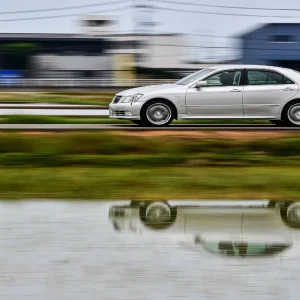
In recent years, societal polarisation has become a prominent feature in many countries, including the UK. This divide, characterised by stark differences in political, social, and economic views, has far-reaching implications for various sectors, including the business car fleet market. As businesses navigate this fragmented landscape, understanding the influence of polarisation on fleet management is crucial for strategic planning and sustainability.
The Current State of Societal Polarisation in the UK
Societal polarisation in the UK has intensified, particularly post-Brexit. The country has seen a marked split in public opinion on issues such as immigration, environmental policies, and economic strategies. This divide is not only evident in public discourse but also in consumer behaviour and business operations. As companies strive to align with their stakeholders’ values, these polarising trends significantly impact their operational choices, including fleet management.
Key Drivers of Polarisation
- Political Landscape: Brexit has been a significant catalyst, creating divisions based on regional, age, and educational lines.
- Economic Disparities: Income inequality and regional economic imbalances contribute to varying perspectives on economic policies and investments.
- Social Issues: Debates over environmental policies, social justice, and cultural identity further exacerbate societal divides.
Impact on Fleet Management Decisions
Vehicle Selection and Environmental Policies
Polarisation influences businesses’ approach to environmental sustainability, particularly in their choice of vehicles. Companies aligned with progressive and environmentally conscious values are increasingly integrating electric vehicles (EVs) into their fleets. This shift is partly driven by the growing emphasis on reducing carbon footprints and adhering to stricter emission regulations.
On the other hand, businesses with a more conservative outlook may prioritise cost-effectiveness and traditional vehicle models. This divergence in fleet choices reflects broader societal divides, as companies seek to resonate with their customer base and stakeholders.
Case Study: EV Adoption Rates
According to the Society of Motor Manufacturers and Traders (SMMT), the uptake of EVs among UK businesses has risen by 38% in the past year. However, this growth is uneven, with higher adoption rates in metropolitan areas and among companies with strong environmental commitments. In contrast, rural and conservative-leaning regions show a slower transition, highlighting the impact of polarisation on fleet decisions.
Fleet Financing and Leasing Trends
The financing and leasing models for business car fleets are also affected by societal polarisation. Companies with progressive agendas often opt for flexible leasing options that allow for the regular updating of their fleets to incorporate the latest sustainable technologies. This approach ensures that their fleet remains compliant with evolving environmental standards and appeals to environmentally conscious consumers.
Conversely, businesses with traditional views may favour outright purchases or long-term leases of conventional vehicles, prioritising financial stability and long-term cost savings over frequent updates.
Market Analysis: Leasing vs. Purchasing
Data from the British Vehicle Rental and Leasing Association (BVRLA) indicates a 22% increase in leasing agreements among environmentally focused businesses. This trend contrasts with a 15% rise in vehicle purchases among companies prioritising economic stability, showcasing how polarisation shapes financial strategies in fleet management.
Regulatory Influence and Compliance Challenges
Emission Standards and Legislative Pressures
The UK government’s commitment to achieving net-zero emissions by 2050 places significant pressure on businesses to align their fleets with stringent emission standards. This regulatory environment amplifies the impact of societal polarisation, as companies grapple with compliance in differing ways.
Progressive companies are more likely to embrace these regulations proactively, investing in green technologies and training their workforce on sustainable practices. In contrast, businesses resistant to change may view these regulations as burdensome, leading to minimal compliance efforts and potential legal challenges.
Example: Ultra Low Emission Zones (ULEZ)
The implementation of ULEZ in cities like London exemplifies this dynamic. Companies operating in these zones face higher costs for non-compliant vehicles, incentivising the adoption of cleaner technologies. However, the reaction to ULEZ varies, with some businesses embracing the change as a necessary evolution, while others perceive it as an economic strain.
Corporate Social Responsibility (CSR) and Stakeholder Expectations
Societal polarisation also influences CSR initiatives related to fleet management. Companies are increasingly expected to demonstrate social and environmental responsibility, which is reflected in their fleet operations. Progressive businesses tend to integrate CSR into their core strategies, including the adoption of eco-friendly vehicles and practices.
In contrast, companies with conservative leanings may adopt a more cautious approach, focusing on basic compliance rather than proactive sustainability measures. This divergence can affect stakeholder relations, with progressive companies often enjoying stronger support from environmentally and socially conscious consumers and investors.
Technological Advancements and Innovation
Adoption of Fleet Management Software
Technological innovation plays a crucial role in shaping fleet management strategies amidst societal polarisation. Fleet management software that enhances efficiency, reduces costs, and supports sustainability is increasingly popular. Progressive companies are at the forefront of adopting these technologies, driven by their commitment to innovation and environmental goals.
These software solutions offer benefits such as real-time monitoring of vehicle performance, predictive maintenance, and route optimisation. They help businesses reduce their carbon footprint, comply with regulations, and improve overall fleet efficiency.
Technological Uptake: A Comparative Analysis
Research by TechUK indicates that 70% of progressive businesses utilise advanced fleet management software, compared to 45% of their conservative counterparts. This disparity highlights how societal values influence the adoption of technological solutions in fleet management.
Impact of Autonomous Vehicles
The emergence of autonomous vehicles (AVs) presents both opportunities and challenges for the business car fleet market. Progressive companies are more likely to invest in AVs, viewing them as a means to enhance efficiency and sustainability. These businesses anticipate long-term benefits such as reduced operational costs, improved safety, and lower emissions.
Conversely, conservative businesses may exhibit caution towards AVs, driven by concerns over initial investment costs, regulatory uncertainties, and potential job losses. This cautious approach can delay the integration of AVs into their fleets, impacting their competitive edge.
Future Outlook: Autonomous Fleet Integration
A report by the Transport Systems Catapult suggests that AV adoption in the UK fleet market could reach 30% by 2030, primarily driven by progressive businesses. However, the report also notes potential resistance from conservative sectors, indicating a slower and uneven adoption rate.
Economic Implications and Market Dynamics
Cost Management and Budget Allocation
Societal polarisation influences how businesses allocate budgets for fleet management. Progressive companies are willing to invest in sustainable technologies and innovative solutions, viewing these expenses as long-term investments. They allocate significant portions of their budgets to acquiring EVs, implementing fleet management software, and training staff on new technologies.
On the other hand, conservative businesses may prioritise cost control and risk minimisation. They focus on maintaining existing fleet infrastructure, opting for traditional vehicles and basic management systems. This approach can limit their ability to respond to market changes and regulatory demands effectively.
Budgeting Trends: Progressive vs. Conservative
Data from the Chartered Institute of Procurement & Supply (CIPS) reveals that progressive businesses allocate 25% more of their budgets to sustainable fleet initiatives compared to conservative companies. This disparity highlights the financial implications of societal polarisation on fleet management strategies.
Market Competition and Supplier Relationships
The competitive landscape of the business car fleet market is also shaped by polarisation. Progressive companies seek partnerships with suppliers who share their environmental and social values. They prefer working with manufacturers and service providers that offer eco-friendly vehicles, sustainable practices, and innovative solutions.
Conversely, conservative businesses may prioritise cost-effective suppliers, focusing on long-standing relationships and traditional products. This preference can influence market dynamics, with suppliers needing to adapt their offerings to cater to both progressive and conservative clients.
Supplier Dynamics: An Industry Perspective
Insights from the Fleet Industry Review indicate that 60% of suppliers have diversified their offerings to cater to the polarised market. This adaptation includes introducing green vehicle options and sustainable services to meet the demands of progressive businesses while maintaining traditional products for conservative clients.
Conclusion
The impact of societal polarisation on the business car fleet market in the UK is profound and multifaceted. From vehicle selection and financing models to regulatory compliance and technological adoption, polarisation shapes the strategies and decisions of businesses across the sector. Understanding these dynamics is crucial for fleet operators, suppliers, and policymakers as they navigate a complex and evolving landscape.
By recognising and addressing the diverse needs and values of their stakeholders, businesses can optimise their fleet management strategies, enhance sustainability, and maintain competitive advantage. As societal polarisation continues to influence market trends, a nuanced and adaptable approach will be essential for success in the UK business car fleet market.





